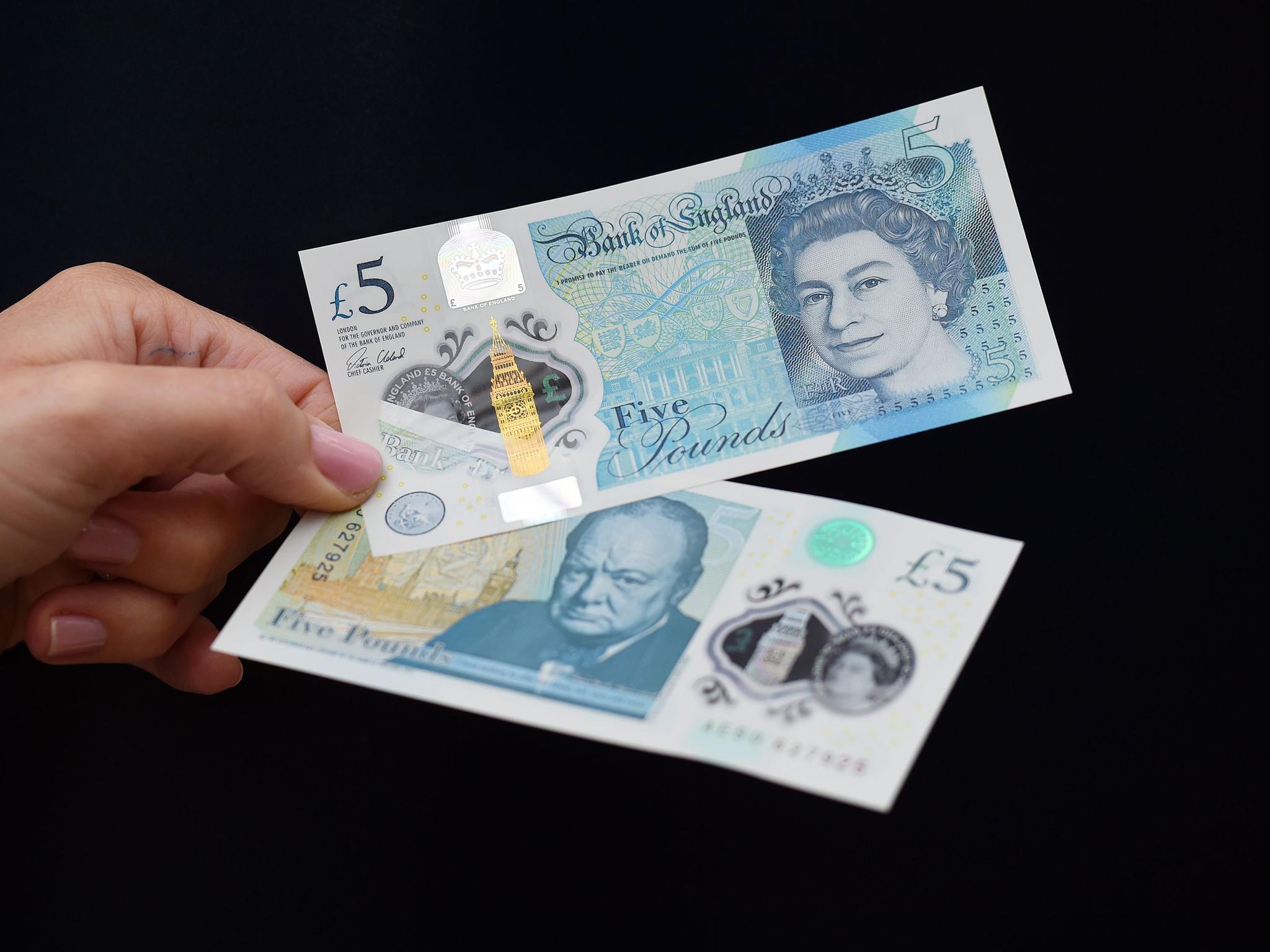Bank of England to keep making banknotes with animal fat despite protests
The move is likely to enrage animal rights activists such as Peta and the National Council of Hindu Temples, which have expressed their outrage at the use of tallow

Your support helps us to tell the story
From reproductive rights to climate change to Big Tech, The Independent is on the ground when the story is developing. Whether it's investigating the financials of Elon Musk's pro-Trump PAC or producing our latest documentary, 'The A Word', which shines a light on the American women fighting for reproductive rights, we know how important it is to parse out the facts from the messaging.
At such a critical moment in US history, we need reporters on the ground. Your donation allows us to keep sending journalists to speak to both sides of the story.
The Independent is trusted by Americans across the entire political spectrum. And unlike many other quality news outlets, we choose not to lock Americans out of our reporting and analysis with paywalls. We believe quality journalism should be available to everyone, paid for by those who can afford it.
Your support makes all the difference.The Bank of England has ignored calls from activists to ditch polymer notes that contain traces of animal fat.
Following a public consultation, the Bank said the new £20 note and future print runs of £5 and £10 notes will continue to be made from polymer, “manufactured using trace amounts of chemicals, typically less than 0.05 per cent, ultimately derived from animal products”.
The move is likely to enrage animal rights activists such as Peta and the National Council of Hindu Temples, which have expressed their outrage at the use of tallow in new bank notes.
“After careful and serious consideration and extensive public consultation there will be no change to the composition of polymer used for future banknotes.
“This decision reflects multiple considerations including the concerns raised by the public, the availability of environmentally sustainable alternatives, positions of our Central Bank peers, value for money, as well as the widespread use of animal-derived additives in everyday products,” the Bank said in a statement.
This is despite 88 per cent of respondents to its consultation being against the use of animal-derived additives being used.
It said the only viable alternative is palm oil, but this raises questions about environmental sustainability and value for money.
The Bank's estimated extra cost of switching to palm oil is around £16.5m over the next 10 years, which would not represent “value for money for taxpayers”.
It added: “The case for moving to polymer banknotes remains compelling.
“Polymer banknotes deliver significant benefits over paper, particularly when combined with state of the art security features which make the notes much harder to counterfeit.
“Polymer is also stronger than cotton-paper and so notes will last longer, remain in better condition and deliver environmental benefits.
“The Carbon Trust has certified that over their full life cycle, the carbon footprint of polymer £5 and £10 notes is lower than paper notes.”
PA
Join our commenting forum
Join thought-provoking conversations, follow other Independent readers and see their replies
0Comments